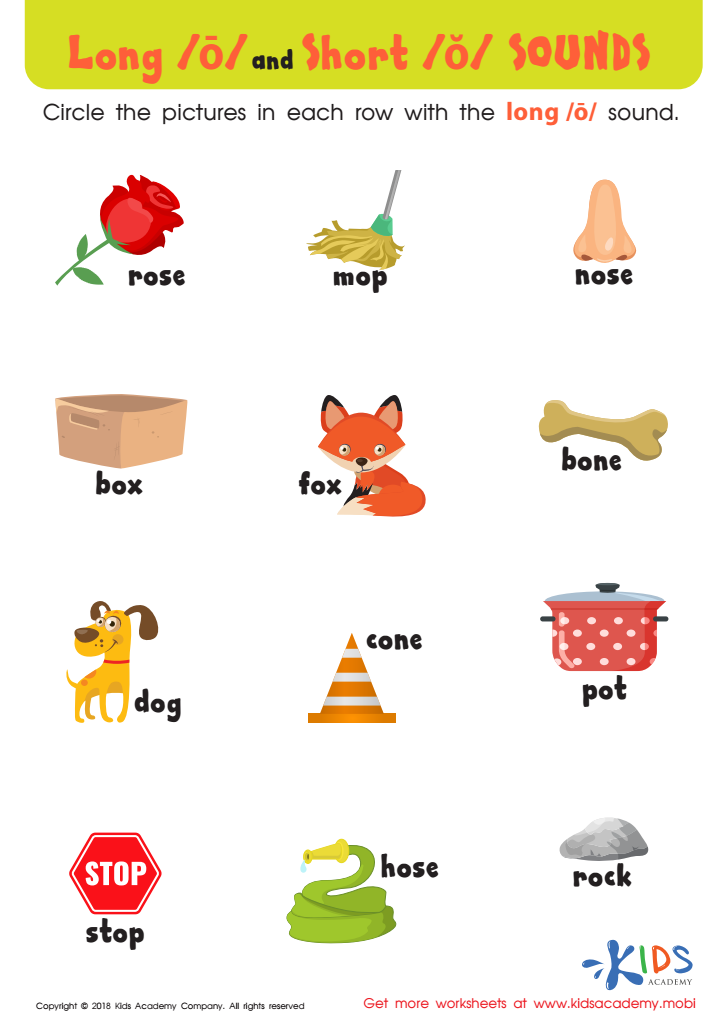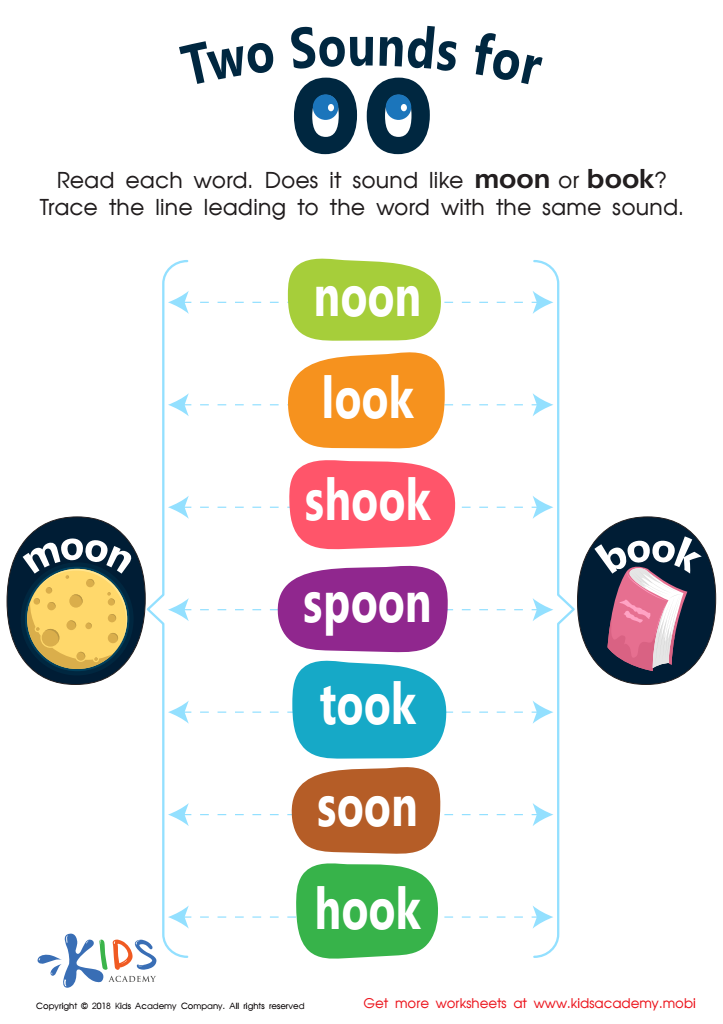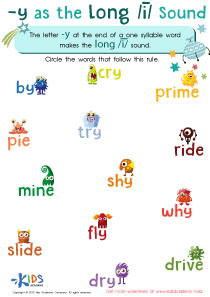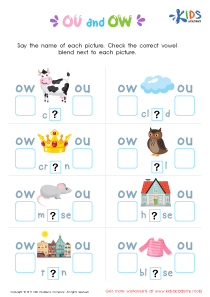Phonics Skills Normal Short Vowels Worksheets for 7-Year-Olds
5 filtered results
-
From - To
Discover our engaging Phonics Skills Normal Short Vowels Worksheets designed specifically for 7-year-olds! These interactive resources make learning fun as students practice identifying and using short vowel sounds. Our worksheets encompass various activities, including tracing, coloring, and word matching, enhancing literacy skills while promoting phonemic awareness. Tailored for early readers, these worksheets provide essential practice to boost confidence in reading and writing. Perfect for classroom use or homework assignments, our short vowel resources help children master phonics in a playful, supportive environment. Explore our collection today to inspire a love for reading through comprehensive and interactive phonics activities!


Reading: Long O and Short O Sounds Worksheet


Short Vowels /e/, /i/, and /u/ Worksheet


Two Sounds for OO Worksheet


Long and Short Vowel Sentences: Assessment Worksheet


Long and Short E Worksheet
Phonics skills, particularly mastery of normal short vowels, are vital for 7-year-olds as they lay the foundation for effective reading and writing. At this age, children are transitioning from learning to read to reading to learn, making their understanding of phonics critical. Short vowels—such as "a," "e," "i," "o," and "u"—are common in many words and play a key role in word recognition. When children grasp short vowel sounds, they can decode new words more easily, which boosts their confidence and motivation.
Furthermore, strong phonetic skills contribute to overall literacy development. Children who can identify and manipulate sounds are better equipped to spell words correctly, improving their writing skills. This proficiency also enhances comprehension; when students can quickly read and understand words, they can focus on engaging with the text's content.
Parents and teachers should be attentive to these skills because they directly impact academic success. Early interventions and support can prevent reading difficulties later on, fostering a lifelong love for learning. Encouraging phonics practice at home or in the classroom establishes a strong literacy foundation that benefits children well beyond their early years, making it an essential focus in early education.
 Assign to My Students
Assign to My Students
















